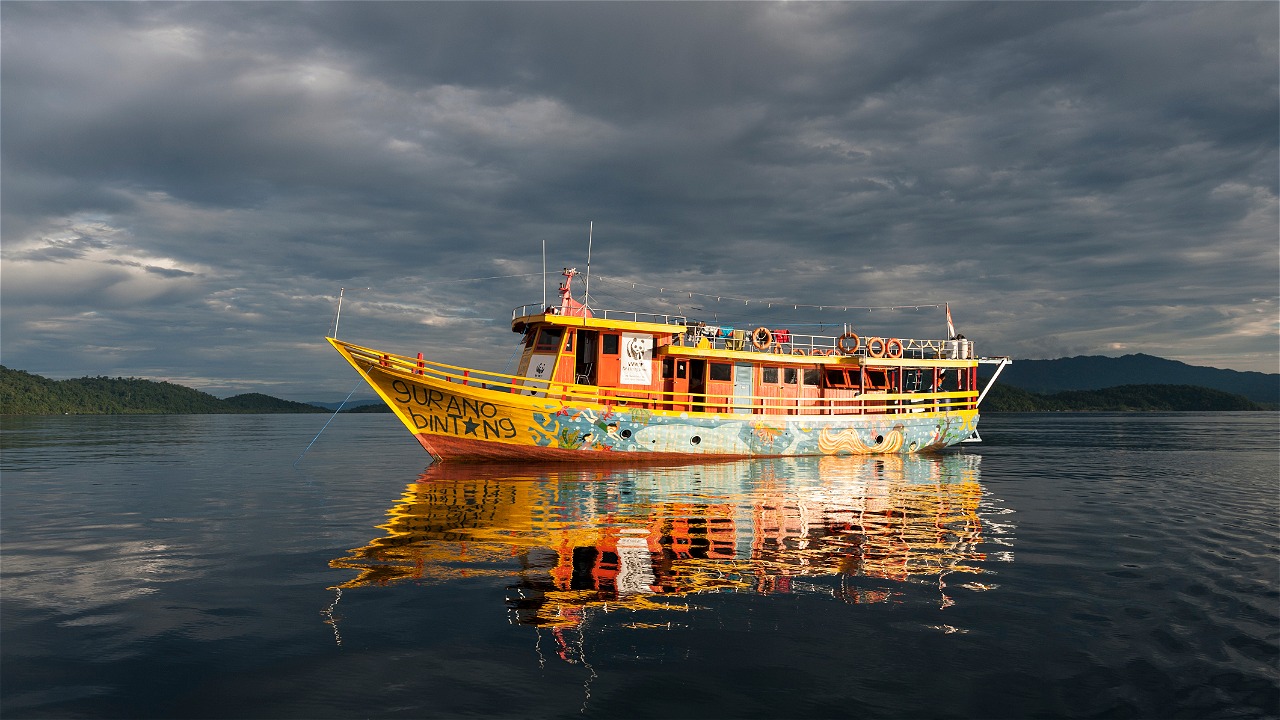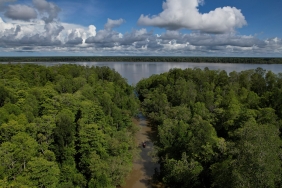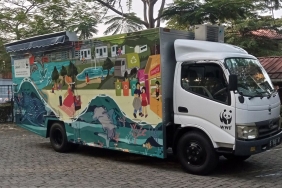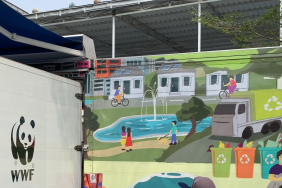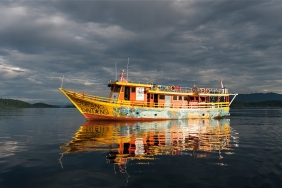EDUCATION, NOT JUST EDUCATING TO BE SMART AT SCHOOL
By: Natalia Trita Agnika
I still remember when I joined the K.M. Gurano Bintang Saireri Expedition in June 2016. This monitoring and education ship owned by WWF-Indonesia visited Sawendui Village located in Yapen Islands Regency, Papua, to collect data and provide environmental education to school-age children there.
I was shocked when I came across children in the 3rd grade of elementary school who did not know colors. There, many of the elementary school-aged children could not read. It turns out that the village does not have a school. To get a formal education at school, these children have to take a boat to a school located in another area. Sometimes, when they arrive at the school, there are no teachers to teach or the number of teachers is very limited, not in accordance with the number of classes. There are also some children who are left for one week in other areas to attend school and return to Sawendui Village on weekends. These alarming conditions illustrate the uneven distribution of education in Indonesia, especially in remote and out-of-reach areas.
Seeing the lack of education for children in remote areas in the Papua region, especially in coastal areas in the Cenderawasih Bay National Park (TNTC) area, WWF-Indonesia through K.M. Gurano Bintang is trying to provide education for children in the villages that become the research destination. K.M. Gurano Bintang is actually a conservation vessel that conducts surveillance of marine areas and Whale Shark populations. But it is not uncommon for the researchers on duty on this motorboat to also teach children about the environment, especially the marine environment and ways to conserve it.
As a conservation organization, WWF-Indonesia believes that education has a close relationship with conservation efforts. Education is not only related to academic matters. In the Sustanaible Development Goals (SDGs) program from UNESCO, children are expected to be educated not just to be smart but also education for the world. The expected education is a holistic education, love for the environment, health issues, and so on. Education is the mother of solutions to various problems.
Through the mission of research and education, K.M. Gurano Bintang is present to build community awareness on the preservation of biological wealth that they have and form a new generation that has a natural insight. The K.M. Gurano Bintang Outreach Team also visits villages to reach out to children living in remote villages in Manokwari Regency, Teluk Wondama Regency, Nabire Regency, and Waropen and Yapen Regencies so that they will be moved to voluntarily protect the potential of their natural resources. In the SDGs, there are also goals related to climate change, underwater life, and life on land. The application is to act quickly to combat climate change and its impacts, preserve and maintain the sustainability of the ocean and the life of marine resources for sustainable development, as well as protect, restore, and increase the sustainability of the use of terrestrial ecosystems, and manage forests sustainably.< br />
The presence of environmental education for children living in the TNTC area is expected to influence the education model in the villages that will contribute to the preservation of nature and improve welfare. Environmental education delivered to children does not just make them academically smart, but builds characters who care about the preservation of nature and utilize it responsibly. You can also support K.M. Gurano Bintang's activities by making a donation through wwf.id/donate.
Happy National Education Day!

